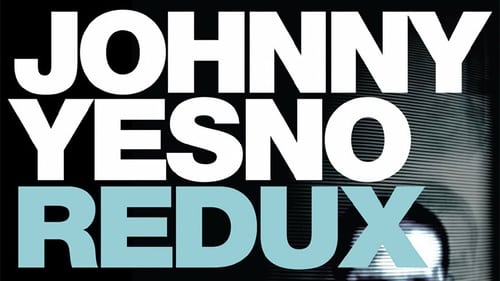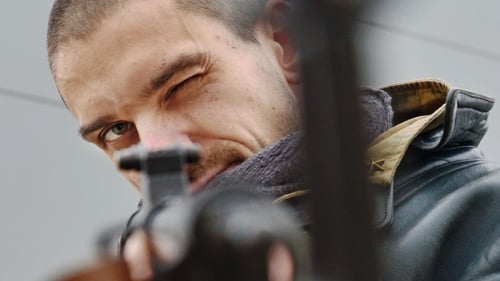My Old Fiddle: A Visit with Tommy Jarrell in the Blue Ridge (1994)
Género :
Tiempo de ejecución : 18M
Director : Les Blank
Sinopsis
The long-awaited sequel to Sprout Wings and Fly is a gentle celebration of mountain living, a once-thriving American way of life.

80-year-old Julie Lyon, sister of Old Time fiddler Tommy Jarrell, lights up this gem of a film as she spins tales of her Appalachian childhood in North Carolina - and her first romance.

A group of friends playing tennis.

A tribute to the Texas songster, Mance Lipscomb, considered by many to be the greatest guitarist of all time.

Set in the North Carolina Appalachians, Sprout Wings and Fly honors the fiddle playing of 82-year-old Tommy Jarrell of Toast, NC. Tommy was quirky, gregarious and generous, and this film shows him at his best, in fine fiddling form.

Based on Mussorgsky's Pictures at an Exhibition. This film used two pinscreens. In front of the main pinscreen, they installed a second, smaller one. This second pinscreen could be rotated thus giving more of an illusion of three-dimensionality

Ballroom dancers Veloz and Yolanda perform the various dance fads of the first half of the twentieth century.

Brazil. Historically Pernambuco state in the country’s northeast was characterised agriculturally by the sugarcane industry. Today there is a new sector in the economy: various evangelical Christian groups are on the rise. The mantra of the evangelicals, who have gained an ever-increasing influence in Brazilian society over the past years, is the attainment of improvements in one’s personal and economic situations through adherence to an extreme religious practice. In Brazil the evangelicals have established themselves as a growing political power over the past years. They control segments of the media and preach hate and intolerance towards homosexuality and other creeds. HOLY TREMOR focuses on a young generation of priests, producers and singers who hail from a rural area and make gospel music. Wagner and de Burca take into account the environment of the protagonists in order to make ethics, morality and life visible in an aesthetic agglomeration.

Les Blank marries his passion for spicy, down home food and his love for Cajuns and Creoles in this mouth-watering, exploration of the cooking, and other enthusiasms, of French-speaking Louisiana. Features tangy music, and food by Marc Savoy, Paul Prudhomme, and other greats.

Johnny YesNo – Redux reunites Cabaret Voltaire and Peter Care almost 30 years later with a completely new cast, a relocation to LA and an entirely new soundtrack remixed by Richard H. Kirk, the film has lost none of its hallucinatory power. The short goes deep into the structure of Peter Care’s original film and the Cabaret Voltaire tracks used in connection with it. What emerges is as much a juxtaposition of times and places as sights and sounds. The tale changes in the retelling, but that change now seems to be taking place on a molecular level. Richard H Kirk has reconfigured the film’s soundtrack, giving the proceedings an ominous sense of something slowly sliding into view from afar, glimpsed out of the corner of the eye.

A boy's childhood scars his life.

The film is a series of comical musical numbers and skits following Phil Harris around, starting with him performing at the Cocoanut Grove nightclub, which is listened to by Dorothy on the radio whose home-brewing husband Walter hates Harris. The action then moves to the country club where Walter unknowingly encounters Harris while being aggravated by his music. Walter then pretends to be Phil to meet a woman while Harris "entertains" her friend, Dorothy.

"Trees and Jamaica Daddy" was the first of a UPA series (short-lived) that featured two different subjects (plot, characters)running about 3.5 minutes each, on a seven-minute reel. The first one here was titled "Trees", featuring a little girl named Hattie giving her version of the birds, the bees and trees. The second one on the reel was called "Jamaica Daddy", about the animated Hamilton Ham and his band, who tell all about, in music and the usual UPA animation style, Jamaica Daddy, and his family tree in calypso fashion. "Ham-and-Hattie" were not a team, and did not appear together in this cartoon.

Julia Sweeney tells the viewers the monologue about the hard time in her life when her brother fought with cancer and she was also diagnosed with a rare form of cancer.

La fuerza de un ángel narra la vida y obra de la Sierva de Dios, Dorothy Day (1897-1980), laica franciscana norteamericana y fundadora del Movimiento del Trabajador Católico que murió después de dedicar su vida a los demás. Esta joven idealista trabajó como periodista y sufragista radical. Su encuentro con la religión, la llevó a trabajar duramente a favor de los necesitados, fundando albergues y comedores con la ayuda de Peter Maurin.
Defensora a ultranza de la no violencia, fue encarcelada varias veces por protestar contra la carrera de armas y la guerra de Vietnam.

In the beginning the idea was to make something from nothing, in a neutral and unknown place. Collect images and sounds instead of producing them. The camera, the microphone and the mini-amplifier: tools that take away and then give back. We defined a rule: the sound shouldn't illustrate the image and the image shouldn't absorb the sound. Less than a hundred kilometres from Reykjavik we found Strokkur. For three days we saw and heard the internal dynamics of the crevice: the boiling water that spat out every seven minutes and the thermal shock, given the eighteen degrees below zero of the atmosphere.

A bee-keeper initiates fight against the society of consumption for saving the bees.

'The Secret World of Foley', takes us on a journey into the little known world of Foley Artists, who bring films to life by adding sound effects in post-production. We follow a multi-award winning two person team of Foley Artists and watch as they work together to bring to life a film about one morning in the life of a fishing village on the English coast. With their perfectly timed and precisely judged sound effects they transform the film as they interpret every sound detail, using props from their vast props store. This film shines a light on a little know film art form and is a testament to magic and wonder of Cinema itself.

At a nightclub, the crowd demands Goopy Geer, and the lanky dog doesn't disappoint them. He gives a zany performance on the piano, but the employees and the customers are just as wacky. A gorilla waiter dances while serving. Three identical cats display a peculiar way of eating. A chicken has a nauseating way of making chicken soup. The nightclub singer tells corny jokes. Even the hat racks come to life and dance. A horse imbibing a too-strong drink provides the show-stopper.

It is sunset in a mountain landscape. An orchestra and a choir, along with a large group of adolescents who act as "living-music-stands", are filmed as they play the first part of Mahler’s 8th Symphony. The musicians gradually begin to move in a precise choreography, led by their living-music-stands. As these movements are executed, disparate groups of musicians, singers, and living-music-stands begin to disappear along with the sounds that they emit. The music progressively becomes a sound object captured in the course of its own erosion, which corresponds to the slow dissolution of the landscape’s visibility due to the setting sun. Ultimately, the music as a sound object and the landscape as a visual object become identical, all while being completely transformed in regard to the starting configuration. Thus, in TRENTO SYMPHONIA, the landscape becomes a point of convergence between contemplation, correspondence, and imagination.

This Nazi propaganda film covers the 1936 Winter Olympics that were held in Germany.






